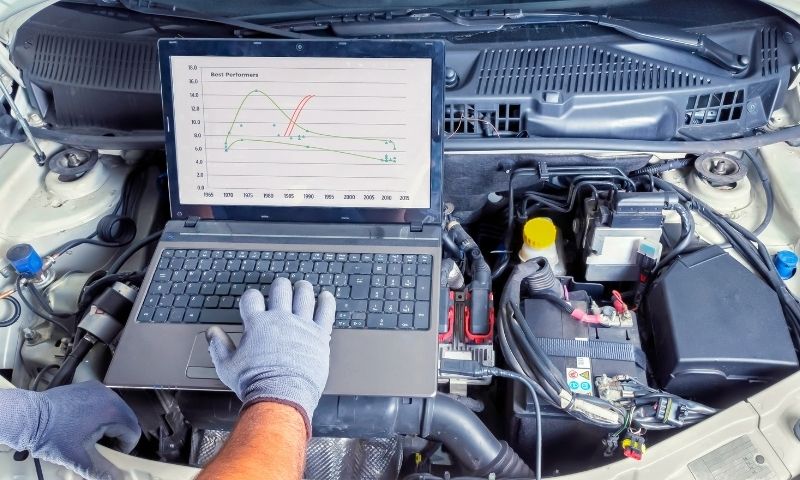A Leading Resource Built By Automotive Lovers, For Automotive Lovers.
We’ve helped consumers around the world make their purchasing decisions.
Latest Articles
The Strava app quickly drains battery because of features like Beacon and Live Segments, which constantly use cellular data. These features won’t work in airplane mode, increasing battery use. To… Bombardier charges its batteries using a stator. The stator generates electrical output. To charge, connect a smart charger to the battery. Attach the positive (red) cable to the positive terminal… The HP Spectre x360 may drain battery overnight due to improper shutdowns, power draw from USB-A or HDMI ports, or battery damage. To minimize this issue, ensure the device is… Skout drains your battery because it syncs in the background and tracks your location. This keeps GPS running, which uses more energy. Other reasons include processor overload, app usage, poor… A Black & Decker replacement battery charges using a dedicated charger. It requires an initial charge of about 9 hours for a full charge. For regular use, recharging takes 3… Recording videos drains battery because it uses power-intensive hardware like the camera and screen. This consumes a lot of energy. To improve battery life, avoid extra apps while recording and… A battery stores charge as chemical energy. It has electrochemical cells that perform chemical reactions. These reactions produce a flow of electrons. When needed, this flow converts into electrical energy…. The Samsung Galaxy S9 loses battery quickly for several reasons. Background apps run at the same time, leading to high battery drain. Push notifications from multiple apps add to energy… A battery pushes charge by moving electrons from the anode to the cathode. This movement raises the chemical potential energy stored in the battery. When the electric circuit closes, electrons… Realtor.com may drain your battery because it runs constantly in the background and frequently updates. It often uses location services to provide real-time information. To reduce battery drain, you can… A battery knows it is charged by measuring electrical current. As the battery charges, the current decreases. This drop indicates it is nearing a full charge. It’s like a container… A battery knows its remaining charge through a coulomb counter. This device measures the current flow and monitors the battery’s voltage, which reflects electrical pressure. By analyzing these factors, it… PvZ Heroes drains the battery on devices like the iPhone 6s. This high usage is due to iOS 11.0.1, background processes, and game design, which may cause overheating. A hard… A battery isolator lets one charging source, such as an alternator, charge multiple battery banks. It functions like a gate valve, directing current flow to each bank while keeping them… OnStar can drain your battery if it doesn’t enter sleep mode. It needs to stay active for emergency 911 calls, which can lead to parasitic drain. To reduce this, you… Pokémon Sun and Moon drain battery because they require a lot of resources. Activities like Super Training and WiFi use raise heat and battery drain, even without 3D effects. Playing… A breakaway system battery charges by connecting the trailer plug to a running tow vehicle with a working charger for about twenty minutes. Check the battery level regularly. If the… The notes app drains battery because of iCloud sync, high CPU usage, and display brightness. Key factors are your device model, iPadOS version, and battery age. Frequent background syncing and… A battery charging circuit works by passing direct current through a lead acid battery. It uses two main charging modes: constant current for fast charging and constant voltage for trickle… A power bank works by storing electrical energy in its internal battery. You recharge it with a wall adapter. To charge your device, connect it to the power bank using… When there is no cell service, your phone searches for a signal. This process increases battery drain. To save battery, enable Airplane mode in low signal areas. Other practical tips… A battery charger for golf carts works by supplying direct current (DC) voltage to recharge the battery. First, connect the charging clamps to the battery terminals, ensuring the positive and… The night clock app drains battery for several reasons. It may keep the screen display on, increasing energy consumption. Frequent alarms prevent the phone from entering sleep mode, leading to… A battery charger’s repair mode helps restore old or damaged batteries by using a higher voltage, typically around 16.5V. It reduces sulfate buildup through a process called desulfation. Before entering… The Nextdoor app can drain your battery because it uses GPS for location services. Background refresh can also add to battery drain. To minimize this, disable location services in your… After an Android update, your Pixel phone may face battery drain. This happens as the device downloads and optimizes the new software. Typically, this drain improves within a few days…. A battery charger rectifier converts alternating current (AC) to direct current (DC). This helps charge batteries and keeps them in optimal condition. The rectifier provides the right voltage for charging… A battery charger recharges batteries by sending electromagnetic energy using inductive coupling. This process transfers energy wirelessly from the charging station to the electrical device. The electrical device stores the… A Xiaomi scooter battery drains fast due to an old or damaged battery pack. Problems with the charging system can also cause this issue. Check the battery pack condition, charger… A battery charger on a boat converts AC power (115V or 220V) to DC power (12V, 24V, or 48V). It has three stages: bulk, absorption, and float. The charger connects…Strava App Battery Drain: Common Issues, Troubleshooting, and Solutions
How Does a Bombardier Charge Battery? A Guide to Proper Charging Process
Spectre X360 Battery Drain Overnight: Common Issues, Troubleshooting, and Solutions
Skout Battery Drain: Causes, Solutions, and Tips for Better Phone Battery Life
How a Black and Decker 20V Lithium Battery Charges Itself: The Complete Process
Why Does Shooting Video Drain So Much Battery? Tips for Longer Battery Life
How a Battery Stores Charge: The Science of Energy Storage Explained
Why Does S9 Lose Battery Drain So Fast? Causes, Issues, and How to Fix It
How a Battery Pushes Charge to Higher Potential: Voltage, Electrons, and More
Realtor.com Battery Drain: Causes, Solutions, and Tips for Mobile App Performance
How a Battery Knows When It’s Charged: Understanding Charge Indicators and Levels
How Does a Battery Know How Much Charge is Left? Measuring State of Charge Levels
PvZ 2 Battery Drain: Why It Drains My Battery So Much and How to Fix It
Battery Isolator: How It Charges a Battery and Its Key Benefits Explained
OnStar Battery Drain: Causes, Solutions, and Expert Q&A on Fixing the Issue
Why Does Pokémon Sun and Moon Drain So Much Battery? Causes and Solutions for Overheating
Charging a Breakaway System Battery: Essential Tips for Trailer Owners
Notes App Battery Drain: Causes, High Usage Solutions, and Troubleshooting Tips
How Does a Battery Charging Circuit Work? A Guide to Basics and Design Principles
Battery Charging Bank: How It Works, Usage Tips, and Beginner’s Guide to Portable Power
Why Does No Cell Service Drain Battery? The Impact of Weak Signals on Battery Life
How a Battery Charger Works for Golf Carts: Tips for Charging Dead Batteries
Night Clock App: Why It Drains Battery Life and How to Optimize Usage
Battery Charger Repair Mode: How It Works and Its Effectiveness Against Sulfation
Nextdoor App Battery Drain: Troubleshooting Tips for Improved Performance
Why Does the New Android Update Drain Battery? Tips to Fix Fast Battery Drain
Battery Charger Rectifier: How It Works, Its Function, and Key Differences
How a Battery Charger Recharges a Battery: A Step-by-Step Guide to the Charging Process
Xiaomi Scooter Battery Drain: Common Issues, Fast Solutions, and Maintenance Tips
How Does a Battery Charger on a Boat Work? A Comprehensive Guide to Marine Charging



